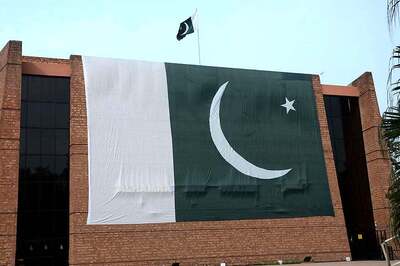
views
Washington: The United States will review whether to withdraw longtime trade benefits for India, Brazil and 11 other advanced developing countries, US trade officials said on Monday.
The decision follows the recent collapse of world trade talks, which many members of Congress blame on the reluctance of large developing countries like India and Brazil to open their markets to more foreign goods.
"One of the concerns that Congress has raised is that GSP (Generalised System of Preferences) benefits go largely to a few countries, while many developing countries are not trading much under the program," US Trade Representative Susan Schwab said in a statement.
"The review I am announcing today, the first in 20 years, will help make certain that we are administering the program consistent with statutory criteria," Schwab said.
The United States imported $26.7 billion worth of goods from under the GSP program in 2005.
The 32-year-old program waives import duties on thousands of products from 133 developing countries and expires at the end of the year unless renewed by Congress.
With that deadline looming and many key lawmakers opposed to renewal, the Bush administration will review whether to "limit, suspend or withdraw" the eligibility of 13 countries that shipped more than $100 million worth of goods to the United States under the program in 2005 or accounted for more than 0.25 percent world goods exports, Schwab's office said.
The targeted countries include Argentina, Brazil, Croatia, India, Indonesia, Kazakhstan, Philippines, Romania, Russia, South Africa, Thailand, Turkey and Venezuela, USTR said.
The Bush administration will also consider whether to withdraw presidential waivers that give those 13 countries and six others unlimited duty-free access for certain products.
Indian Commerce and Industry Minister Kamal Nath told Reuters in New Delhi he could not comment on the possible loss of GSP benefits until getting full details. India is one of the biggest beneficiaries of the program. A coalition of business groups, think tanks and activist organizations are expected to push for renewal of GSP.
The program saved US businesses an estimated $923 million in 2005, while helping provide jobs in poor countries.
"If you don't renew it, you're going to have some adverse consequences" for US allies such as Iraq, Afghanistan, Turkey and Sri Lanka, said Viji Rangaswami, a trade associate at the Carnegie Endowment for International Peace. Also, expelling India from the program would mostly hurt "very small, family-based operations" that export jewelry to the United States under GSP, Rangaswami said.
Schwab said in her statement the program should be continued and expanded for many developing countries even if benefits for others are reduced or withdrawn.



















Comments
0 comment